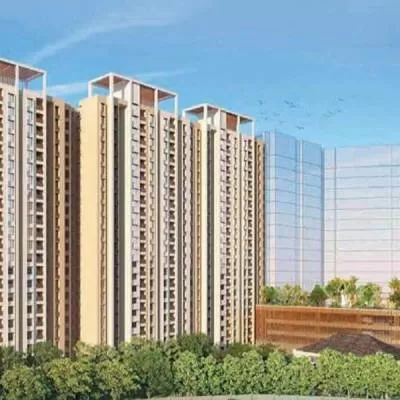- Home
- Real Estate
- One-sided Game
One-sided Game
Times aren’t the best for real-estate developers. But, despite this, they insist on the original registered agreement to protect their interests, instead of including changes required by the buyer. In fact, if one were to read an agreement in detail – something that most buyers don’t do – one would note that it is always one-sided – according to the developer’s whims and fancies.
“Who frames an agreement? It’s the lawyer who represents the builder. So, it is bound to be one-sided,” says Pranay Vakil, Chairman, Knight Frank India Pvt Ltd. “But, these days, not many people register their properties to avoid paying registration and stamp duty charges. Most of them, especially investors, are happy to operate on the basis of an allotment letter from the builder,” he adds.
In many cases, builders start marketing their properties even before they obtain the intimation of disapproval (IOD) and commencement certificate (CC). IOD is a permission given to a developer by the concerned government authority to go ahead with the construction of a property. Under the pertinent terms and conditions, the developer is mandated to comply with many requirements including obtaining clearances from the environment board, fire-safety authorities, etc. After the IOD is issued, the builder has to get a CC, which allows him to go ahead with construction. “Without this, how legitimate is it to sell? But, people still buy such properties,” says a legal officer with one of the publicly-traded real-estate firms on the condition of anonymity. Adding to this, the Maharashtra Ownership of Flats Act (MOFA) of 1963, which governs such contracts, is around 50-years old. “Hence, there is no equity in the law,” adds the officer.
A multi-dimensional issue?
In most cases where the developer does not own the land, people enter into a tripartite agreement, which, according to Vakil, can get really complicated. Often, a builder has a standard agreement for all units in a project; thus, every buyer signs a document in the same format. Moreover, the terms and conditions mentioned in the agreement are usually applicable for all buyers. What’s worse, the builder even takes legal charges from the buyer to draft an agreement in his (the builder’s) favour. This usually amounts to a whopping Rs 10,000 per agreement! Agreements are signed in the worst-case scenario. “There are good and bad people on both sides,” says the officer. “Buyers, too take developers for a ride. As a result, the developer protects his interests not only from the buyer but also from the landowner,” he adds.
Problem areas
The project completion date is a major problem area. The MOFA Act 1963 states that every developer has to state a project completion date in the agreement, which is not practiced in many cases. Also, many agreements have a differential level of penalties in case of delayed payments. For instance, if the buyer delays a payment, he would be charged a higher interest rate, which in most cases is compounded. Contrary to this, if the developer delays completion, the MOFA draft gives scope for a grace period of one year, after which the buyer has the right to cancel the flat, following which he will be refunded the amount. But, conditions apply – this amount will come to him in 12 installments at a much lesser simple interest.
Is this justified? “Yes,” says, Lalit Kumar Jain, President, Confederation of Real Estate Developers Association of India (CREDAI). “The cost of funds that we borrow as developers is much higher than what a buyer borrows. His risk is much lesser when compared to ours,” he adds. South-Mumbai based real-estate broker, Arvind Idlani, raises a point, “In many cases, the refund amount clauses come with many riders. For instance, the buyer will not be refunded if the completion delay is beyond the developer’s control. And, in most cases, developers claim that the delays are due to the non-availability of cement, labour, etc. But, how does one check the validity of such claims?”
“Such a practice does not conform to the Act and is legally contestable. Buyers blindly sign agreements and naively follow them, whereas the legislation has provisions for such things. Our group buying precisely addresses such issues, where individual buyers are not able to be assertive,” says Nitin Degaonkar, Director, Home Buyers Combine – a Pune-based, flat-buying company for bulk requirements.
Another issue is the collection of common area maintenance (CAM) charges. In many cases, developers claim to have the right to appoint the facility management team for CAM but add a rider saying that they are not responsible if the team does not perform as per the buyer’s requirement. “The issue is that builders collect maintenance deposits upfront at Rs 2 per sq ft per month with very little transparency,” says Bengaluru-based Kshitij Minglani, Co-founder, Homebuy360.com – a cloud-based online resource for real estate information for buyers and builders that aims to increase transparency between the two.
Other problem areas include complex terms like carpet area, built-up area and super built-up area. “Many developers confuse a buyer with such jargon. In many cases, they don’t allow us to measure the flat before signing the agreement. So, how does one know whether his claims on paper are right or not,” adds Idlani.
Another bone of contention for the developer is the payment for maintenance of unsold flats. “In this case – irrespective of whether a society is formed or not – it is the developer’s responsibility to pay all outgoings/maintenance,” says Ameet Hariani, a Mumbai-based property lawyer.
To top it all, the biggest glitch in such a contract is that in many instances, a developer includes a clause that prevents the buyer from selling within a stipulated time (lock-in period). Some unscrupulous developers also go to the extent of including a clause, wherein they have a share in the profits made by selling such a flat. In fact, some are even reluctant to form a society so as to cash in on the transfer charges. “There is no clarity on this. Some developers take the amount (from the sale profits) in cash, and others at a fixed rate per square foot, and in some cases, it flows from a head lease,” says Vakil. A head lease refers to the contract between the developer and landowner, such as a government body or agency. This stipulates that if a sale is made within the lock-in period, some amount shall go to the government agency. “The lock-in is fair in my opinion,” says Shveta Jain, Director-Residential Services, Cushman & Wakefield. “This prevents investors and also controls the inventory build-up in the market.”
The road ahead
Things are set to change. Recently, the Competition Commission of India (CCI) asked north-India based DLF to ’cease and desist’ from imposing unfair terms and conditions in the agreements it entered with its buyers. In fact, DLF stands to pay a Rs 630 crore penalty for this. The competition acted upon a complaint filed by the residents of Magnolia – a DLF project in Gurgaon. “It is important for all real-estate companies to include necessary changes as mentioned by CCI in the DLF case,” cautions a Bengaluru-based legal officer working for an unlisted real-estate firm.
“One way to protect the buyer’s interest is to enter into a supplemental agreement (drafted by the buyer’s lawyer) and get it registered,” says Vakil. But, how many developers agree to enter into this? He responds, “It depends on their mood. With the way things are in the current market, they just might agree.”
“The recent Maharashtra Housing Bill 2012, however, has made provisions for appellate and tribunals to ensure that buyers are exposed to minimum risks in the process of purchase and that their property and interest are safeguarded,” says Jain. Above all, it’s high time buyers studied the various clauses in such contracts and demand changes before they sign the dotted line. This will elicit higher accountability and transparency from builders and work better for the real-estate industry as a whole.
Going beyond legal provisions, what is the solution? “I would suggest that all buyers buy a ready-to-occupy flat. Despite being 25 per cent higher in cost, it’s worth every penny,” believes Vakil. Jayashree Nathan, a Bengaluru-based caterer who purchased her second flat when it was under construction, couldn’t agree more. “Thankfully, I had a house to live in.
Otherwise, the stress that I had to go through because of the delay in my second flat is inexplicable. I got the house three years after I was promised,” she laments.
But, things seem set to change, especially with the Real Estate Regulatory Authority having been under discussion for quite sometime now under the Maharashtra Housing Bill. While developers have to protect their interests, the fight between buyers and developers will take shape only when, and if, new regulations kick in. Until then, the game seems to continue.
Key highlights of the Maharashtra Housing Bill in favour of buyers:
• Proposal for formation of a separate housing regulatory authority for registration of projects. Project details will be displayed on the website of this authority.
• Promoter to take steps to form a co-operative society within four months or when minimum 60 per cent of the flat buyers have taken possession – whichever is earlier.
• The Regulatory Body is required to do the following:
- Ensure compliance and obligations by promoters
- Maintain list of projects
- Initiate enquiry into compliance if required
- Report matter to authority against promoter for any offence
- Pass order on receiving a complaint within three months after hearing the matter through parties or their representatives.
- The authority will establish procedures for speedy processing of permissions
- Promote ratings of promoters by association with a view to improve raise the confidence levels of investors
To share your views on this report, write in at feedback@ASAPPmedia.com
‘Consumer is king’ is an adage that doesn’t seem to apply in the world of real estate. Shipa Shree finds that most contracts signed between the developer and buyer are one-sided – in favour of the developer.Times aren’t the best for real-estate developers. But, despite this, they insist on the original registered agreement to protect their interests, instead of including changes required by the buyer. In fact, if one were to read an agreement in detail – something that most buyers don’t do – one would note that it is always one-sided – according to the developer’s whims and fancies.“Who frames an agreement? It’s the lawyer who represents the builder. So, it is bound to be one-sided,” says Pranay Vakil, Chairman, Knight Frank India Pvt Ltd. “But, these days, not many people register their properties to avoid paying registration and stamp duty charges. Most of them, especially investors, are happy to operate on the basis of an allotment letter from the builder,” he adds.In many cases, builders start marketing their properties even before they obtain the intimation of disapproval (IOD) and commencement certificate (CC). IOD is a permission given to a developer by the concerned government authority to go ahead with the construction of a property. Under the pertinent terms and conditions, the developer is mandated to comply with many requirements including obtaining clearances from the environment board, fire-safety authorities, etc. After the IOD is issued, the builder has to get a CC, which allows him to go ahead with construction. “Without this, how legitimate is it to sell? But, people still buy such properties,” says a legal officer with one of the publicly-traded real-estate firms on the condition of anonymity. Adding to this, the Maharashtra Ownership of Flats Act (MOFA) of 1963, which governs such contracts, is around 50-years old. “Hence, there is no equity in the law,” adds the officer.A multi-dimensional issue?In most cases where the developer does not own the land, people enter into a tripartite agreement, which, according to Vakil, can get really complicated. Often, a builder has a standard agreement for all units in a project; thus, every buyer signs a document in the same format. Moreover, the terms and conditions mentioned in the agreement are usually applicable for all buyers. What’s worse, the builder even takes legal charges from the buyer to draft an agreement in his (the builder’s) favour. This usually amounts to a whopping Rs 10,000 per agreement! Agreements are signed in the worst-case scenario. “There are good and bad people on both sides,” says the officer. “Buyers, too take developers for a ride. As a result, the developer protects his interests not only from the buyer but also from the landowner,” he adds.Problem areasThe project completion date is a major problem area. The MOFA Act 1963 states that every developer has to state a project completion date in the agreement, which is not practiced in many cases. Also, many agreements have a differential level of penalties in case of delayed payments. For instance, if the buyer delays a payment, he would be charged a higher interest rate, which in most cases is compounded. Contrary to this, if the developer delays completion, the MOFA draft gives scope for a grace period of one year, after which the buyer has the right to cancel the flat, following which he will be refunded the amount. But, conditions apply – this amount will come to him in 12 installments at a much lesser simple interest.Is this justified? “Yes,” says, Lalit Kumar Jain, President, Confederation of Real Estate Developers Association of India (CREDAI). “The cost of funds that we borrow as developers is much higher than what a buyer borrows. His risk is much lesser when compared to ours,” he adds. South-Mumbai based real-estate broker, Arvind Idlani, raises a point, “In many cases, the refund amount clauses come with many riders. For instance, the buyer will not be refunded if the completion delay is beyond the developer’s control. And, in most cases, developers claim that the delays are due to the non-availability of cement, labour, etc. But, how does one check the validity of such claims?”“Such a practice does not conform to the Act and is legally contestable. Buyers blindly sign agreements and naively follow them, whereas the legislation has provisions for such things. Our group buying precisely addresses such issues, where individual buyers are not able to be assertive,” says Nitin Degaonkar, Director, Home Buyers Combine – a Pune-based, flat-buying company for bulk requirements.Another issue is the collection of common area maintenance (CAM) charges. In many cases, developers claim to have the right to appoint the facility management team for CAM but add a rider saying that they are not responsible if the team does not perform as per the buyer’s requirement. “The issue is that builders collect maintenance deposits upfront at Rs 2 per sq ft per month with very little transparency,” says Bengaluru-based Kshitij Minglani, Co-founder, Homebuy360.com – a cloud-based online resource for real estate information for buyers and builders that aims to increase transparency between the two.Other problem areas include complex terms like carpet area, built-up area and super built-up area. “Many developers confuse a buyer with such jargon. In many cases, they don’t allow us to measure the flat before signing the agreement. So, how does one know whether his claims on paper are right or not,” adds Idlani.Another bone of contention for the developer is the payment for maintenance of unsold flats. “In this case – irrespective of whether a society is formed or not – it is the developer’s responsibility to pay all outgoings/maintenance,” says Ameet Hariani, a Mumbai-based property lawyer.To top it all, the biggest glitch in such a contract is that in many instances, a developer includes a clause that prevents the buyer from selling within a stipulated time (lock-in period). Some unscrupulous developers also go to the extent of including a clause, wherein they have a share in the profits made by selling such a flat. In fact, some are even reluctant to form a society so as to cash in on the transfer charges. “There is no clarity on this. Some developers take the amount (from the sale profits) in cash, and others at a fixed rate per square foot, and in some cases, it flows from a head lease,” says Vakil. A head lease refers to the contract between the developer and landowner, such as a government body or agency. This stipulates that if a sale is made within the lock-in period, some amount shall go to the government agency. “The lock-in is fair in my opinion,” says Shveta Jain, Director-Residential Services, Cushman & Wakefield. “This prevents investors and also controls the inventory build-up in the market.”The road aheadThings are set to change. Recently, the Competition Commission of India (CCI) asked north-India based DLF to ’cease and desist’ from imposing unfair terms and conditions in the agreements it entered with its buyers. In fact, DLF stands to pay a Rs 630 crore penalty for this. The competition acted upon a complaint filed by the residents of Magnolia – a DLF project in Gurgaon. “It is important for all real-estate companies to include necessary changes as mentioned by CCI in the DLF case,” cautions a Bengaluru-based legal officer working for an unlisted real-estate firm.“One way to protect the buyer’s interest is to enter into a supplemental agreement (drafted by the buyer’s lawyer) and get it registered,” says Vakil. But, how many developers agree to enter into this? He responds, “It depends on their mood. With the way things are in the current market, they just might agree.”“The recent Maharashtra Housing Bill 2012, however, has made provisions for appellate and tribunals to ensure that buyers are exposed to minimum risks in the process of purchase and that their property and interest are safeguarded,” says Jain. Above all, it’s high time buyers studied the various clauses in such contracts and demand changes before they sign the dotted line. This will elicit higher accountability and transparency from builders and work better for the real-estate industry as a whole.Going beyond legal provisions, what is the solution? “I would suggest that all buyers buy a ready-to-occupy flat. Despite being 25 per cent higher in cost, it’s worth every penny,” believes Vakil. Jayashree Nathan, a Bengaluru-based caterer who purchased her second flat when it was under construction, couldn’t agree more. “Thankfully, I had a house to live in.Otherwise, the stress that I had to go through because of the delay in my second flat is inexplicable. I got the house three years after I was promised,” she laments.But, things seem set to change, especially with the Real Estate Regulatory Authority having been under discussion for quite sometime now under the Maharashtra Housing Bill. While developers have to protect their interests, the fight between buyers and developers will take shape only when, and if, new regulations kick in. Until then, the game seems to continue.Key highlights of the Maharashtra Housing Bill in favour of buyers:• Proposal for formation of a separate housing regulatory authority for registration of projects. Project details will be displayed on the website of this authority.• Promoter to take steps to form a co-operative society within four months or when minimum 60 per cent of the flat buyers have taken possession – whichever is earlier.• The Regulatory Body is required to do the following:- Ensure compliance and obligations by promoters- Maintain list of projects- Initiate enquiry into compliance if required- Report matter to authority against promoter for any offence- Pass order on receiving a complaint within three months after hearing the matter through parties or their representatives.- The authority will establish procedures for speedy processing of permissions- Promote ratings of promoters by association with a view to improve raise the confidence levels of investorsTo share your views on this report, write in at feedback@ASAPPmedia.com
























